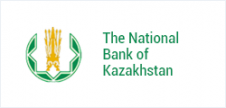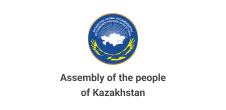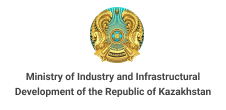B5+1 Forum: Business Partnership - Prosperity in the Central Asian Region

On March 14-15, 2024, the first B5+1 Forum (Business 5+1) was held in Almaty to fulfill the obligations of the New York Declaration signed by the leaders of the C5+1 countries. The Forum hosted a productive discussion between business representatives, governments, the expert community, investors from all five Central Asian countries (Kazakhstan, Kyrgyzstan, Uzbekistan, Tajikistan, Turkmenistan), and the United States. The parties reached agreements aimed at strengthening cooperation and improving the business environment through partnership to promote the region's economic prosperity.
The Forum discussed the economic opportunities of Central Asia, a dynamically developing region. Attention was drawn to creating a favorable environment for attracting new investors, and priority policy measures were identified. Adoption of these measures could contribute to increasing the volume of foreign investment and ensuring access to regional and international markets for businesses in the region.
As a result of active discussions and proposals, a joint statement from the business community was presented. The document offers several specific recommendations to improve the business environment and attract investment to Central Asia by strengthening the role of the private sector in active cooperation with the governments of the region and the investment community of the United States and the outside world.
Conclusions on regional cooperation
The Presidents' efforts of the C5 countries (Kazakhstan, Kyrgyzstan, Uzbekistan, Tajikistan, Turkmenistan) to accelerate regional integration through regular summits are essential. A common and more integrated Central Asian market, united by economic and business ties, can attract more international investment and trade, both from the United States and other countries of the world. Experts note that expanding cooperation between Central Asian countries will allow diversification of East–West trade corridors and increase access to global markets.
Conclusions about the contribution of "B5+1"
The B5+1 Forum promotes the positioning of Central Asia as an attractive economic destination and not just a transit zone in global flows. To this end, recommendations have been developed to improve trade, transit, and investment regulatory measures. In addition, the Forum aims to harmonize legislation at the level of the region's countries in critical sectors such as transport and logistics, agribusiness, e-commerce, tourism, and the field of "green" and renewable energy.
Transport and logistics
According to the data, trade and transit costs in Central Asia are 80% more expensive than in other regions due to the region's lack of access to the sea. Despite the need for large investments in the development of transport infrastructure, the participants concluded that costs can be reduced by eliminating non-geographical and non-trade barriers.
The B5+1 Forum confirmed the need to focus the attention of government agencies and international organizations on priority areas:
- Digitalization of customs procedures, including the introduction of electronic waybills (e-CMR) and ensuring their implementation as a security system for transit and cargo insurance;
- The introduction of a general permit or visa regime for trucks.
Agribusiness
Agriculture significantly contributes to regional GDP (from 5% in Kazakhstan to 25% in Uzbekistan and other countries). However, local processors export less than 1% of their products to the markets of neighboring countries.
On September 15, 2023, in Tashkent, the B5+1 subgroup on agribusiness agreed on several measures to develop cross-border trade.
The following measures are of the highest priority:
- Creation of a working group at the regional level consisting of representatives of government agencies and businesses to develop a roadmap;
- Introduction of insurance mechanisms against extreme weather events;
E-commerce
The e-commerce market is rapidly developing in Central Asia. It is projected that from a volume of $11 billion in 2023, this market will grow to almost $150 billion in the next decade. The main factors contributing to the market's development are increasing Internet access and the introduction of numerous e-commerce platforms and digital payment systems.
To expand the e-commerce market, the Forum provided the following recommendations from the "B5+1" subgroup on e-commerce:
- Adoption of an interstate Agreement on the development of e-commerce in Central Asia to harmonize national legislation and regulations in this area;
- At the level of business associations, identify sources of financial support and training for entrepreneurs who want to develop their business in the field of e-commerce.
Tourism
Central Asian countries know the importance of regional cooperation in tourism development as a critical economic and income growth factor. The initiative, the Silk Road Tourism Development Association, which includes participating countries, contributes to unlocking the collective potential of the region. However, the share of tourism in the regional GDP of Central Asian countries is still less than 5% of the national figure. This indicates the sector's untapped potential for the region's economies, including because tourists, as a rule, stay in only one country. The reasons are the need for more standard approaches and regional strategies, insufficiently developed infrastructure, and an acute shortage of qualified personnel.
To increase the regional tourism potential on the part of the regional subgroup "B5+1" on tourism, the following is recommended:
- Creation of the Silk Road of Central Asia regional tourism business platform;
- Promotion of Central Asia as a single tourist destination combining the cultural and historical riches of the region;
- Create a mechanism for developing common approaches and strategies in tourism, including tourism marketing, the formation of a single brand, and the development of cultural and historical tourism.
Transition to green and renewable energy
The transition to green and renewable energy is crucial for improving energy efficiency in the face of climate, energy, and water challenges in Central Asia. To encourage the introduction of commercially available and attractive mechanisms, it is recommended:
- To adopt regional standards for the transition to "green" energy;
- To activate public-private partnerships with the participation of associations for the "green" economy.
Source: Center for International Private Enterprise

























